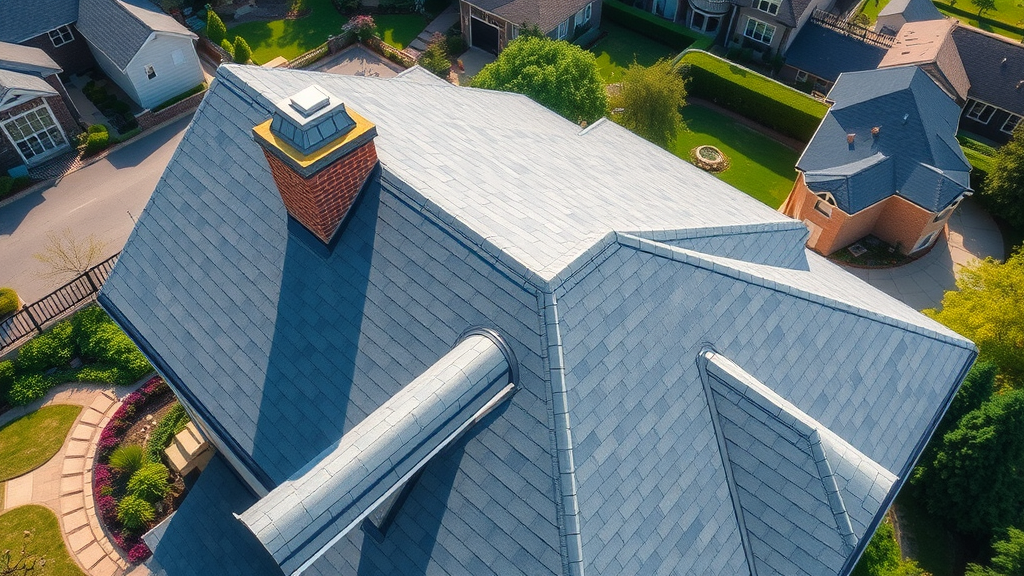
All seasons roofing services
📞 Phone: +44 7779 787103
🌐 Website: http://allseasonsroofingservices.co.uk/
★★★★★
Rating:5.0
Is Your Roof Ready for the Next Storm? Understanding Why Roof Lead Work Protects Your Home
Water damage from a leaky roof isn’t just a nuisance—it’s a costly problem that can disrupt daily living and compromise the safety of your home. Every year, countless homeowners in Chesterfield and beyond face unexpected repair bills simply because they overlooked a critical detail: the lead work on their roofs. If you’ve ever found a hidden drip in your attic or a mysterious patch of damp plaster, your house may be telling you something important. Roof lead work is the barrier standing between your home and relentless weather, yet so many people don’t know it even exists until something goes wrong.
Most people expect a roof to just “work,” quietly doing its job in the background. But the truth is, even well-built roofs need precise, properly installed lead flashing at the joints to keep out water and the elements. Without solid lead work, rain sneaks in, and before you know it, a small drip can turn into major structural damage. Many homeowners don’t realize how much hinges on these metal lines—until repairs become urgent and expensive. Whether you’re a new homeowner or have lived in your house for decades, understanding the role of roof lead work, from its installation to ongoing repair, is the key to keeping your property secure and dry. This article will walk you through everything you need to know, so you can spot problems before they start and get the peace of mind you deserve.

Demystifying Roof Lead Work: The Silent Guardian of Your Home’s Integrity
Roof lead work isn’t just about sealing up the edges—it’s a precise craft designed to protect your home from one of its greatest enemies: water. At its core, lead flashing serves as a shield at vulnerable roof junctions, bridging the gaps where sections meet, whether it’s around your chimney, in valleys, or at wall joints. When done properly, roof lead work guards against the constant pressure of rain, snow, and even the strong Derbyshire winds, stopping leaks before they start. This attention to detail in installation and repair isn’t just for looks; it’s essential work that preserves both your property value and your personal comfort, especially during the harsh seasons.
Ignoring flashes, bends, or cracks in your roof’s lead work can set the stage for mold, wood rot, and costly damage that sneaks up fast. Water doesn’t need a big opening to cause chaos—just a single gap where lead flashing has failed, and suddenly ceilings are spotted, and wooden supports are soaked. Many don’t realize that lead work isn’t a one-time job; it needs regular checks and professional maintenance. Far too often, people wait for damp patches to appear inside before acting, and by then, the simple fix has grown into a renovation headache. Knowing how roof lead work functions—and what happens when it’s neglected—empowers you to protect your biggest investment for years to come.

Why Proper Roof Lead Work Stops Leaks, Saves Money, and Offers Long-Term Peace of Mind
When homeowners search for expert insight into roofing solutions, the real value comes from companies that understand the importance of every detail—especially roof lead work. As reflected in the practice of experienced professionals in Chesterfield, effective lead work is about far more than just filling gaps; it’s about creating a seamless safeguard that stands up to relentless weather. Proper lead flashing bridges the crucial spaces between roof tiles and walls, or around chimneys, preventing water from sneaking into your attic and living spaces. This proactive approach saves money on long-term repairs, tackles potential points of failure before they become problems, and keeps the uncomfortable surprises of interior water damage at bay.
A big benefit of reliable roof lead work is its ability to add years to the life of the entire roofing system. Instead of constant repair cycles and hidden leaks, homeowners enjoy steady, uninterrupted comfort in their homes. Comprehensive roof lead work, paired with other roofing services, turns your property into a safe haven—whatever the forecast. Beyond saving on emergency repairs, a well-maintained roof with quality lead flashing protects your investment’s value and offers a comforting stability that every family deserves. It’s not just about keeping rain out; it’s about ensuring your home stands strong no matter what nature throws at it.

From Ancient Materials to Modern Methods: The Enduring Role of Lead Work in Roofing
Lead has been used on roofs for centuries, proving its worth as one of the most reliable materials for weatherproofing vulnerable points. Historically, lead’s unique properties—its durability, malleability, and resistance to corrosion—made it the first choice for lining valleys and flashing around chimneys. While other materials have emerged, modern roofers still turn to lead for its extraordinary ability to withstand environmental stress, temperature shifts, and even movement in building structures over time. The fact that lead flashing from decades—and sometimes centuries—ago can still be functional is a testament to its lasting power.
Today, modern roof lead work blends traditional expertise with new tools and safety standards, ensuring every home gets the benefit of time-tested protection. The continued popularity of lead flashing in both residential and commercial settings proves its enduring relevance, and expert installation now means even better results. For homeowners in Chesterfield and surrounding areas, investing in proper lead work is a way to connect with a rich tradition of craftsmanship while embracing technology that keeps water out with even greater efficiency.
How to Spot Trouble Early: Practical Tips for Maintaining Roof Lead Work
Protecting your home starts with vigilance, and when it comes to roof lead work, early detection is crucial. Homeowners can benefit from routine visual surveys of their roofs—especially after high winds or heavy rainfall. Look for signs of lifting, cracks, or misaligned lead flashing along intersections and around chimneys. Even a seemingly minor gap can invite significant damage over time. If walking on roofs isn’t safe or possible, using binoculars from the ground or checking from upstairs windows can often give a clue if something’s amiss.

Another practical tip: watch for tell-tale signs inside your home. Damp spots on ceilings or walls near the roofline, unexplained musty odors, or even visible streaks often signal a breach in the flashing. When you’re not sure what to look for—or if you want that extra layer of certainty—don’t hesitate to consult experienced professionals for a thorough inspection. Their trained eyes can catch issues invisible to most, usually before they become costly headaches. Scheduled, expert roof checks are an effective way to extend the life of your roof and protect every corner of your investment.
The Real Impact of Attention to Detail: An Expert’s Approach to Roof Lead Work
Expertise in roof lead work goes well beyond simply installing sheets of metal; it is a careful craft built on years of hands-on experience and a commitment to long-lasting solutions. Professionals in the Chesterfield area take pride in offering more than basic repairs—with over seven years in the industry, their philosophy centers on delivering above-average results for above-average homeowners. Their team treats each roof as a unique project, matching materials and methods to the specific needs of the property and climate. The focus is on precision: every edge, corner, and join is inspected and secured to guard against even the smallest chance of leakage.
This customer-first mindset, reflected in the business’s ethos, ensures no job is too big or too small—each receives the full benefit of expertise and care. Beyond the technical know-how, clear communication and a willingness to exceed expectations distinguish their approach. Homeowners are kept informed, and every repair or installation is explained with care, so clients know exactly where their property stands. Combining quality workmanship with a helpful, honest, and reliable attitude means clients can trust not just the finished roof, but the integrity of the people behind it.
Trust Earned in Action: What Homeowners Appreciate About Expert Roof Lead Work
Real-world feedback often says more than technical explanations ever could. In the words of satisfied homeowners, it’s the prompt, knowledgeable response and crystal-clear communication that build confidence in a roof’s long-term performance. Sometimes, it’s only when a problem is solved the right way—efficiently and respectfully—that people truly see the value of professional attention to every flashing and detail. Here’s one homeowner’s experience with expert roof lead work:
Had all seasons roofing out to check out a leak, Ash came out and responded very quickly, advised me on what to do, provided me with a video and explained everything that needs to happen. Very knowledgeable, polite and punctual. Would not hesitate in using again or recommending.
Stories like this underline how the right help, delivered professionally and with clear communication, makes all the difference in stressful situations. Homeowners who take action and trust experienced teams often find not just a fix, but genuine peace of mind—and the knowledge that their investment is in safe hands for the future.
Roof Lead Work: The Homeowner’s Key to a Dry, Secure, and Stress-Free Future
The importance of outstanding roof lead work cannot be overstated—it is the unsung hero of a truly dry, safe home. Adequate lead flashing doesn’t just patch things up; it’s a smart investment that stands strong through every storm and season. As demonstrated by local experts driven by precision, customer care, and reliability, the right approach to roof lead work shields your property from water’s destructive force. When every seam and corner is expertly sealed, homeowners are free to relax, knowing that their roof will hold up in any weather. Understanding your roof’s lead work today means protecting your home, your wallet, and your peace of mind for years to come.
Contact the Experts at All Seasons Roofing Services
If you’d like to learn more about how roof lead work could benefit your home’s protection and comfort, contact the team at All Seasons Roofing Services.
📞 Phone: +44 7779 787103
🌐 Website: http://allseasonsroofingservices.co.uk/
All Seasons Roofing Services Location and Availability
🕒 Hours of Operation:
📅 Monday: Open 24 hours
📅 Tuesday: Open 24 hours
📅 Wednesday: Open 24 hours
📅 Thursday: Open 24 hours
📅 Friday: Open 24 hours
📅 Saturday: Open 24 hours
📅 Sunday: Open 24 hours
 Add Row
Add Row  Add
Add 










 Add Row
Add Row  Add
Add 

Write A Comment